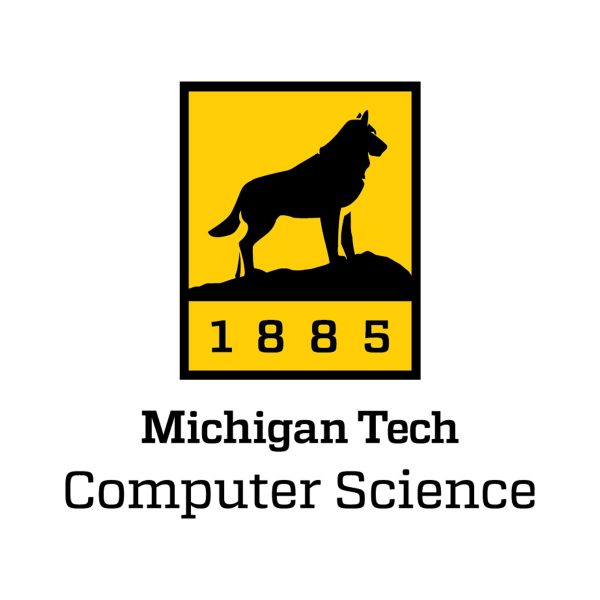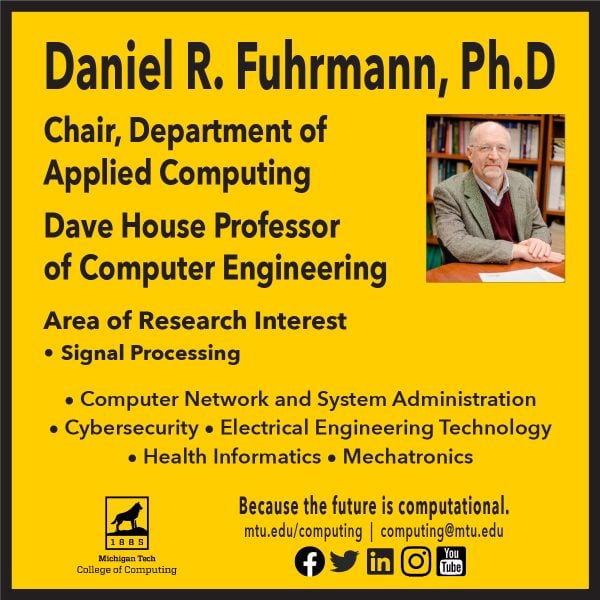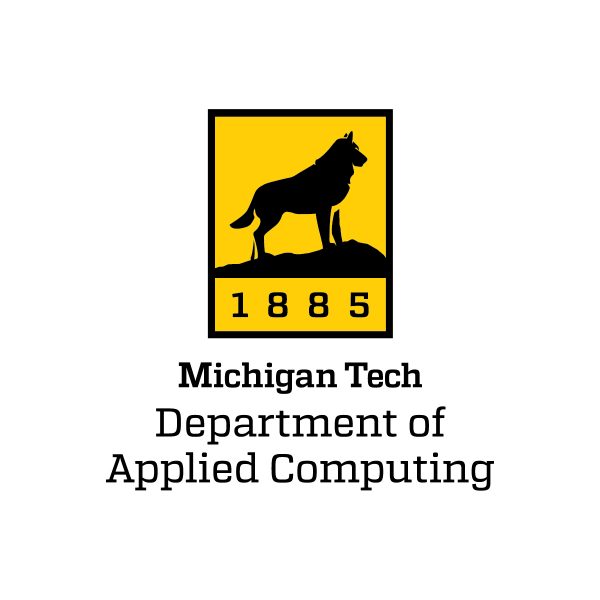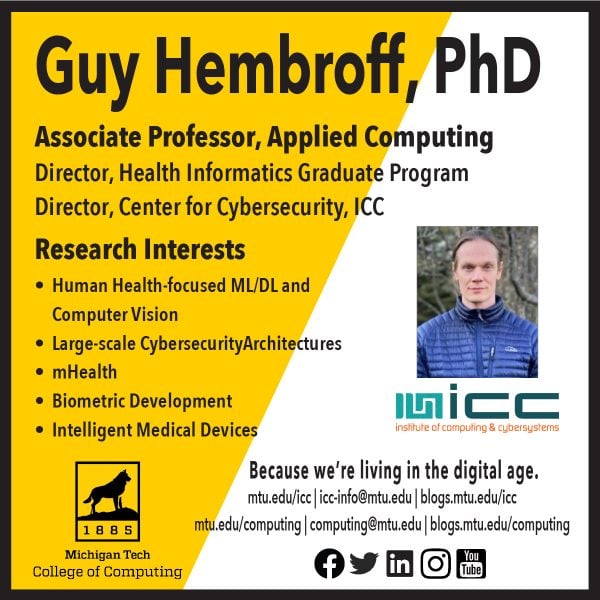
Timothy Havens, the William and Gloria Jackson Associate Professor of Computer Systems, has co-authored a paper recently published in The Journal of the Acoustical Society of America, Volume 50, Issue 1.
The paper is titled, “Recurrent networks for direction-of-arrival identification of an acoustic source in a shallow water channel using a vector sensor.” Havens’s co-authors are Steven Whitaker (EE graduate student), Andrew Barnard (ME-EM/GLRC), and George D, Anderson, US Naval Undersea Warfare Center (NUWC)-Newport.
The work described in the paper was funded by the United States Naval Undersea Warfare Center and Naval Engineering Education Consortium (NEEC) (Grant No. N00174-19-1-0004) and the Office of Naval Research (ONR) (Grant No. N00014-20-1-2793). This is Contribution No. 76 of the Great Lakes Research Center at Michigan Technological University.
Abstract
Conventional direction-of-arrival (DOA) estimation algorithms for shallow water environments usually contain high amounts of error due to the presence of many acoustic reflective surfaces and scattering fields. Utilizing data from a single acoustic vector sensor, the magnitude and DOA of an acoustic signature can be estimated; as such, DOA algorithms are used to reduce the error in these estimations.
Three experiments were conducted using a moving boat as an acoustic target in a waterway in Houghton, Michigan. The shallow and narrow waterway is a complex and non-linear environment for DOA estimation. This paper compares minimizing DOA errors using conventional and machine learning algorithms. The conventional algorithm uses frequency-masking averaging, and the machine learning algorithms incorporate two recurrent neural network architectures, one shallow and one deep network.
Results show that the deep neural network models the shallow water environment better than the shallow neural network, and both networks are superior in performance to the frequency-masking average method.
Citation: The Journal of the Acoustical Society of America 150, 111 (2021); https://doi.org/10.1121/10.0005536Steven Whitaker1,b), Andrew Barnard2, George D. Anderson3, and Timothy C. Havens4

Department of Computer Science faculty and students presented two posters, a paper, and chaired a session at the 26th Annual Conference on Innovation and Technology in Computer Science Education (ITiCSE), conducted online June 26 to July 1, 2021.
“A Visualization for Teaching Integer Coercion,” a poster presented by James Walker with Steven Carr, Ahmed Radwan, Yu-Hsiang Hu, Yu Chin Cheng, Jean Mayo, and Ching-Kuang Shene, was one of three posters that received the conference’s Best Poster Award.
The poster describes the Expression Evaluation (EE) visualization tool. The tool is designed to aid students in understanding type conversions that take place implicitly in C. Understanding type conversions is essential to avoid Integer errors in C which continue to be a source of security vulnerabilities.
An additional paper and poster were presented at the conference, below. Dr. Linda Ott chaired a conference session on Students: Diversity.
Poster: Modeling the Growth and Spread of Infectious Diseases to Teach Computational Thinking by Meara Pellar-Kosbar, Dylan Gaines, Lauren Monroe, Alec Rospierski, Alexander Martin, Ben Vigna, Devin Stewart, Jared Perttunen, Calvin Voss, Robert Pastel and Leo Ureel II
The poster discusses a simulation model developed to teach middle school students about the spread of infectious diseases augmented with affordances to help students develop computational thinking skills. The simulation was partially developed as a Citizen Science project in the courses CS4760 and CS5760, User Interface Design and Human Computer Interaction.
Presentation: Frozen in the Past: When it Comes to Analogy Fears, It’s Time For Us to “Let it Go” by Briana Bettin and Linda Ott
This position paper describes a fundamental difference in attitudes toward the use of analogy in the computer science education community versus other STEM education communities. Additionally, it provides suggestions for how to address concerns in the CS education research community in order to advance research into the use of analogy in computing education
The 26th annual conference on Innovation and Technology in Computer Science Education (ITiCSE) was sponsored by ACM, the ACM Special Interest Group on Computing Education (SIGCSE), the ACM Europe Council, and Informatics Europe.
The College of Computing is pleased to welcome new Department of Computer Science faculty members Dr. Dukka KC and Dr. Xinyu Lei.

College of Computing Dean Dennis Livesay will resume in-person open drop-in office hours every Friday from 2:00 to 3:00 p.m., beginning Friday, August 24, 2021, through the spring 2022 semester, while classes are in session.
All faculty, staff, and students who wish to chat with Dr. Livesay are invited to “drop in.” Appointments are not needed.
Dean Livesay’s office is in Rekhi Hall, Room 223. Email the dean at dlivesay@mtu.edu.

Dr. Daniel R. Fuhrmann, Dave House Professor of Computer Engineering, has been appointed chair of the Department of Applied Computing, effective immediately. Dr. Fuhrmann has been interim chair of the department since its founding in 2020. Prior to joining the College of Computing, he was chair of the Department of Electrical and Computer Engineering (ECE) from 2008 to 2019.
“I couldn’t be more excited,” said Dr. Dennis Livesay, the Dave House Dean of Computing. “Dan was instrumental in the creation of the College, and I know that his leadership will help the department achieve its promise. Computing is transforming every discipline and it’s hard to imagine any unit on campus reflecting that more than the Department of Applied Computing.”
The Department of Applied Computing offers undergraduate Bachelor of Science programs in Computer Network and System Administration (CNSA) and Electrical Engineering Technology (EET). On the graduate side, the department also offers a M.S. in Health Informatics.
The department also collaborates on three convergence programs. In cooperation with the Department of Computer Science it offers the B.S. in Cybersecurity, which began enrolling students in Fall 2019. In cooperation with the Department of Manufacturing and Mechanical Engineering Technology (MMET), in the College of Engineering, the department offers both a M.S. and B.S. in Mechatronics, which began enrolling students in Fall 2019 and 2020, respectively.
In addition to teaching AC program courses, faculty in the department pursue research in a variety of computing areas, including cybersecurity, mechatronics, health informatics, and machine learning. Growing the department’s industrial and applied research portfolio will be a major emphasis for Dr. Fuhrmann.
“I’m excited about doing what I can to help build this new department at Michigan Tech,” says Fuhrmann. “There are a lot of synergies that may not be immediately apparent within traditional academic structures, but they reflect what is happening in industry today.”
For example, computer networks and cybersecurity are playing an increasingly important role in industrial control and automation, and robotics and the Internet of Things is highly relevant for the evolving field of health informatics, Fuhrmann explains.
“Machine learning is also having an impact across all areas in the department,” Fuhrmann adds. “We will be focusing on helping both our students and our industry partners navigate this convergence of physical and cyber technologies.”

The Department of Applied Computing brings together those faculty and programs in the College of Computing with a common interest in applied aspects of computing.

On May 18, 2021, Dr. Guy Hembroff, Applied Computing, presented an invited talk at a meeting of Michigan’s Health Information Management Systems Society (HIMSS). Dr. Hembroff discussed his work developing a trusted framework architecture designed to improve population health management and patient engagement.
The talk demonstrated his team’s work in the development of accurate geo-tagged pandemic prediction algorithms, which are used to help coordinate medical supply chains to care for patients most vulnerable to COVID-19, an innovation that can be extended to help improve general population health management.
The framework of the pandemic prediction architecture, which aggregates longitudinal patient health data, including patient generated health data and social determinants of health, is a holistic and secure mHealth community model. The model can help Michigan residents overcome significant barriers in healthcare, while providing healthcare agencies with improved and coordinated population management and pandemic prediction.
The architecture’s machine learning algorithms strategically connect residents to community resources, providing customized health education aimed to increase the health literacy, empowerment and self-management of patients. The security of the architecture includes development of unique health identifiers and touch-less biometrics capable of large-scale identity management.
Dr. Guy Hembroff is an associate professor in the Applied Computing department of the Michigan Tech College of Computing, and director of the Health Informatics graduate program. His areas of expertise are network engineering, medical/health informatics, biometric development, intelligent medical devices, data analytics, and cybersecurity.
The event was sponsored by HIMSS and Blue Cross Blue Shield of Michigan (BCBSM).
A mission-driven non-profit, the Healthcare Information and Management Systems Society, Inc. (HIMSS) is a global advisor and thought leader supporting the transformation of the health ecosystem through information and technology, according to the organization’s website.

Dr. Guy Hembroff presented a talk to representatives of a number of digital health startup companies May 20, 2021, as part of an event hosted by the the HealthSpark program of 20 Fathoms, an entrepreneurial-focused member organization in Traverse City, Michigan.
The startup companies, in many U.S. locations, are being mentored by 20 Fathoms members.
Dr. Hembroff is an Associate Professor of Applied Computing and director of the Health Informatics Master of Science degree program at Michigan Tech.
Dr. Hembroff’s talk, “Cybersecurity and Privacy + X: Best Practices for Health Startups,” was designed to help startup companies gain awareness of and plan strategically for the cybersecurity and privacy elements of their company, affiliations with vendors, and the rights and protections of consumers.
Talk topics included an overview of data security and privacy, web security, scams and fraud detection and protection, mobile device security, network security, incident response, digital health data integration and interoperability, and protection from ransomware attacks.
The HealthSpark program is Traverse City’s digital health accelerator. The organization advances innovation and facilitates solutions that will resolve today’s challenges in rural healthcare. A community-focused initiative, HealthSpark work sto bring world-class healthcare solutions to rural patients through the advancement of digital technology.

20Fathoms is a membership organization for entrepreneurs, intrapreneurs, tech professionals, creatives, and other innovators in the the Traverse City, Michigan, region.
Led by a team of experts who have walked-the-walk, we provide services, resources, support, and a robust network to help our members accelerate both their careers and businesses, according to the 20Fathoms website.